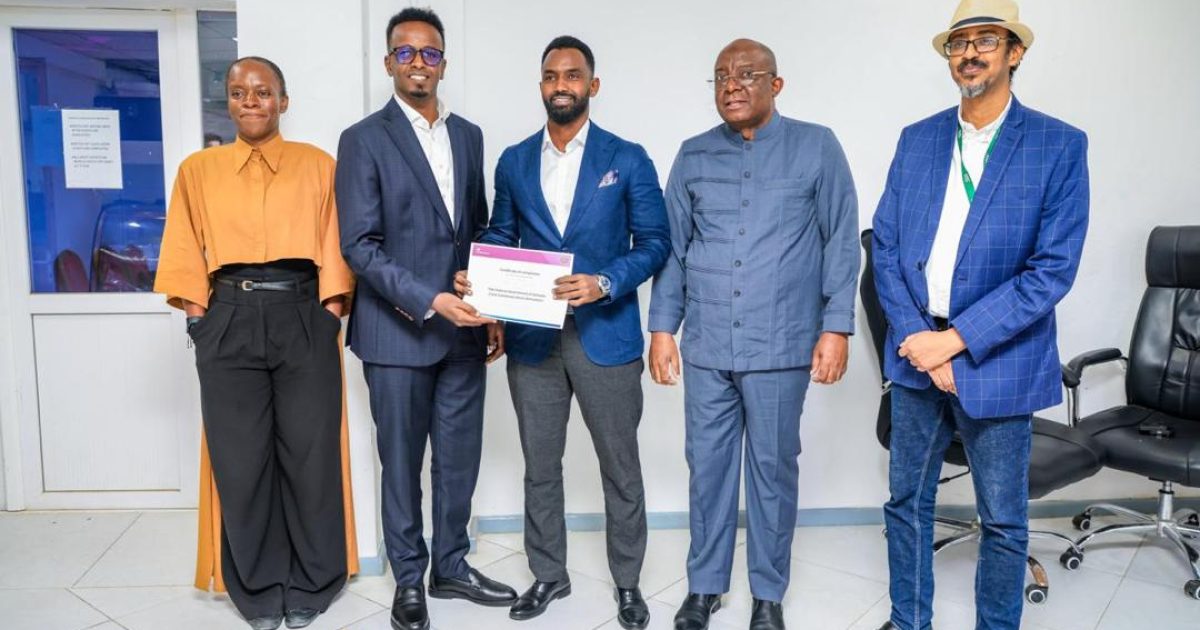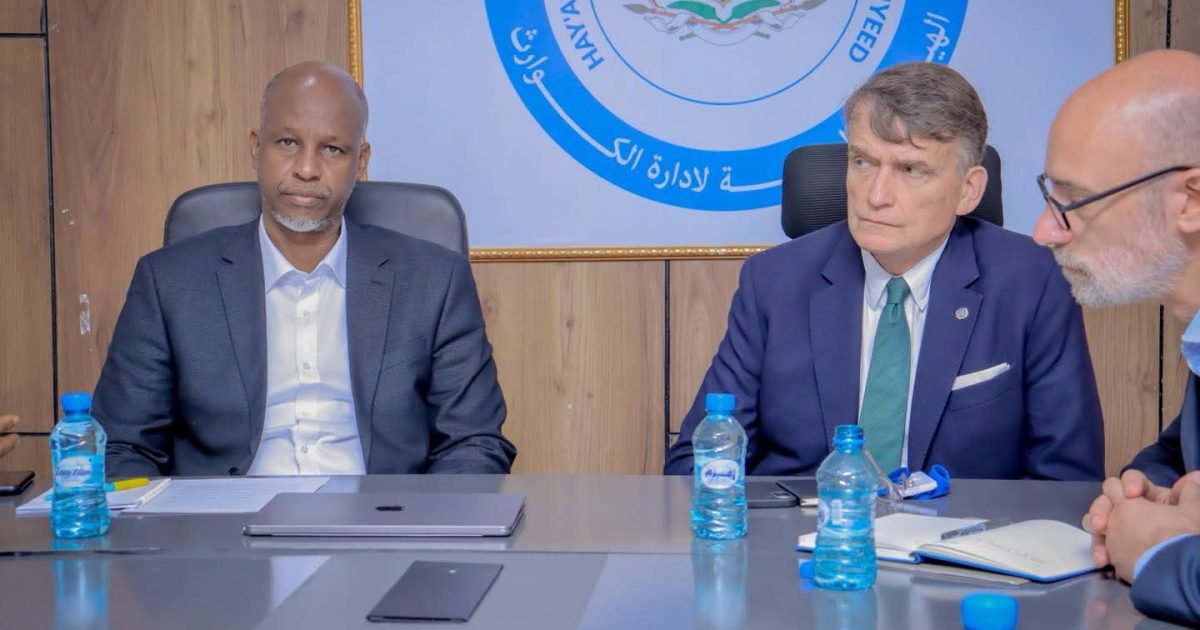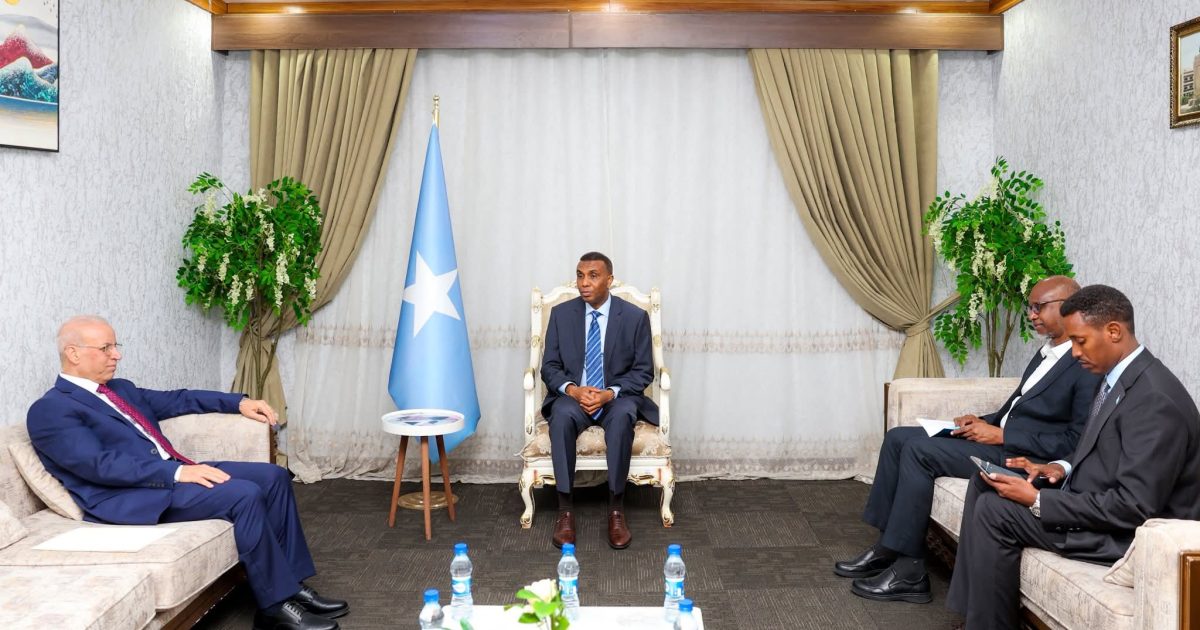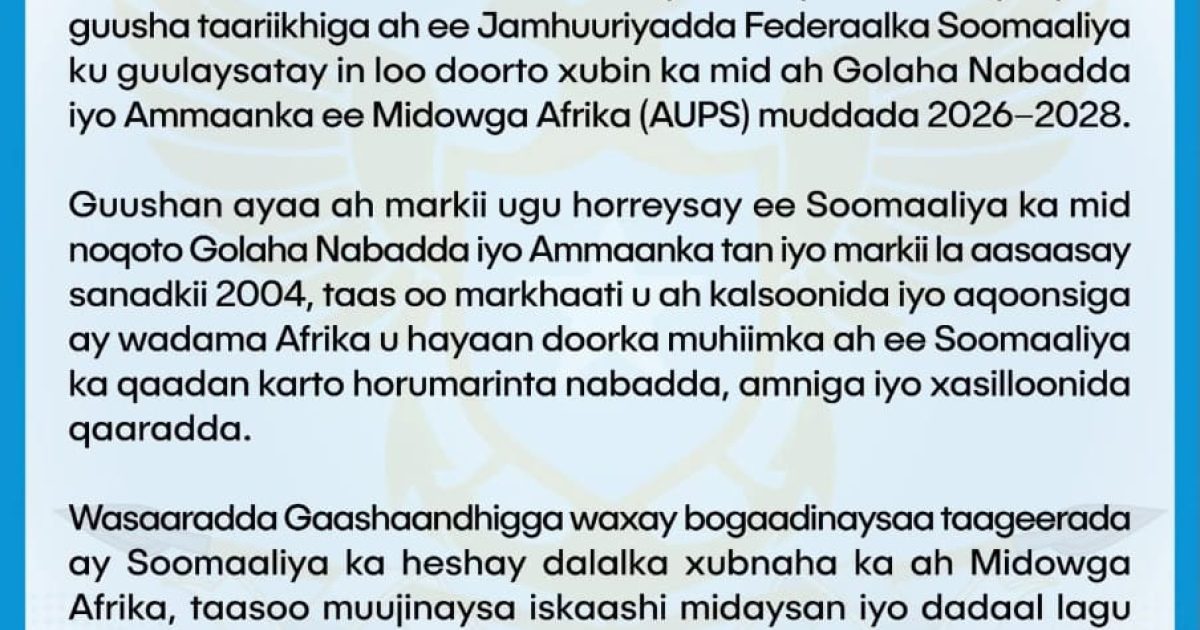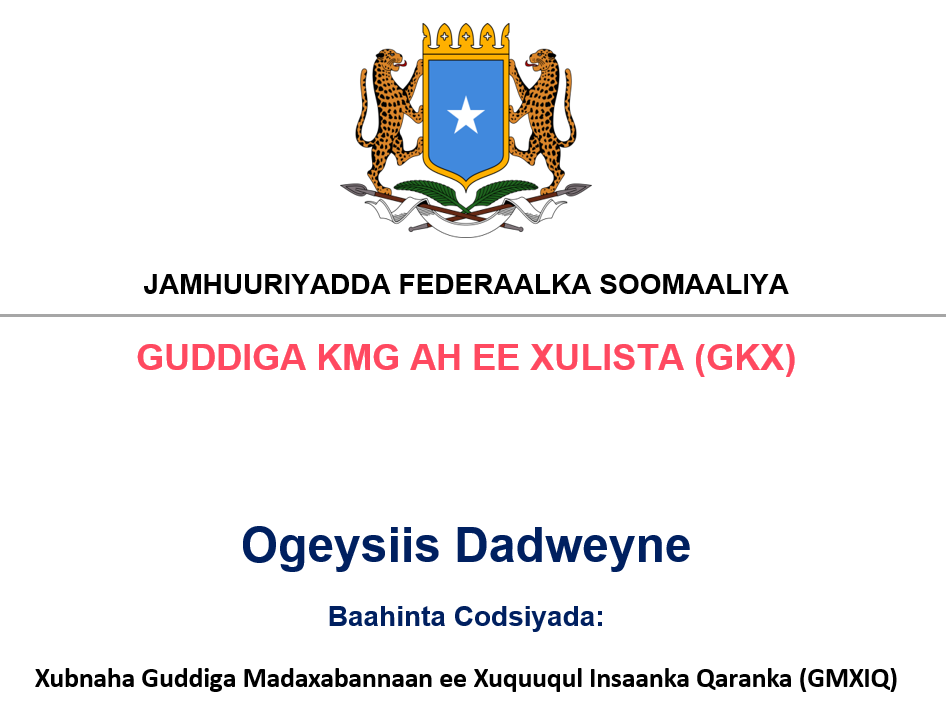- Somali authorities and IMF reach a staff-level agreement on the completion of the first review of the third Staff-Monitored Program (SMP III).
- Authorities’ continued strong policy commitment to implement reform measures is supporting satisfactory performance under SMP III.
- IMF team is hopeful that, following satisfactory completion of SMP III, a successor IMF program could be designed to pave the way to move Somalia toward the Decision Point under the HIPC Initiative.
An International Monetary Fund (IMF) staff team led by Mohamad H. Elhage visited Nairobi, Kenya, from December 1–6 to meet the Somali authorities and conduct the first review under the 12-month (May 2018-April 2019) Staff-Monitored Program (SMP).
At the end of the visit, Mr. Elhage issued the following statement:
“Following productive discussions, the IMF team and the Somali authorities reached a staff-level agreement on the completion of the first review under the Staff-Monitored Program (SMP). The agreement is subject to approval by the IMF Managing Director, who is expected to consider the Staff Report for the first review under the SMP in early 2019.
“Economic activity in 2018 is recovering from the 2016–17 drought. A favorable rainy season is supporting the economic recovery, particularly in the agricultural and livestock sectors; this is leading to a decline in food prices. Increased activities in the construction, communication, commerce, and service sectors are expected to be sustained. As a result, real GDP growth and inflation are projected at 3.1 and 3.5 percent (from 2.3 and 5.5 percent in 2017), respectively. Overall, fiscal performance through September 2018 has been strong. The fiscal balance at end of September recoded a surplus of $8 million (up from $2.3 million in June), mainly due to continued strong domestic revenue collection.
“The Somali authorities are determined to achieve their long-term recovery and growth objectives. They are stepping up efforts to prepare the ninth National Development Plan (NDP9). It is built on the 2017–19 NDP (NDP8), and the authorities intend it to serve as the basis for an interim Poverty Reduction Strategy Paper (i-PRSP) document that will lay out the Somali development goals, challenges, and financing requirements. This will require substantial financing needs and donors’ support as well as Somali stakeholders’ participation at all levels.
“Despite a difficult environment, performance under the SMP is strong. The IMF team welcomes the authorities’ commitment to continue improving the fiscal framework for the remainder of 2018 and for 2019 by expanding gains from the new tax measures and by keeping expenditure under control. The team recommended several measures to strengthen public financial management (PFM) reform, including expenditure control and minimizing the use of cash advances; improving domestic arears management capacity; maintaining efforts toward achieving Treasury Single Account; and continuing to make progress toward fiscal federalism.
“The authorities have made considerable progress in implementing steps to support the launch of the new national currency. The team supports the Somali authorities’ effort to continue reaching out to donors to secure funding for the currency reform project.
“The team stresses the importance of accelerating the implementation of financial sector reforms, with priority placed on restructuring of the central bank and regulating the mobile money sector. While progress continues on improving commercial bank and non-banking supervision, there is a need to further strengthen the capacity of the Licensing and Supervision Department. The team welcomes the submission of the Targeted Financial Sanctions Law to Parliament and stresses that its steadfast implementation would help safeguard the large remittance inflows to Somalia. In this regard, the team also encourages the authorities to support capacity development at the Financial Reporting Center (FRC).
“The team encourages the Somali authorities to sustain their reform momentum. After a successful completion of the first two 12-month SMPs (from May 2016 to April 2018), as well as satisfactory performance under the current SMPIII, the FGS policy commitment remains strong and capacity is strengthening. We are hopeful that following the satisfactory completion of SMP III, which will expire in the Spring 2019, a successor IMF program could be designed to meet the conditionality of an Upper Credit Tranche (UCT) arrangement and pave the way to move Somalia toward the Decision Point under the HIPC Initiative.
“The IMF stands ready to continue supporting Somalia’s reform agenda and capacity development needs by intensifying technical assistance and training in areas of its expertise, particularly on (1) budget preparation and administration; (2) public financial management, including treasury, arrears, and debt management; (3) tax policy and administration; (4) national accounts and government financial statistics; (5) AML/CFT and correspondent banking relationship; (6) banking licensing and supervision; and (7) central bank organization and currency reform.
“During the visit, the team met with the Finance Minister, Mr. Abdirahman Duale Beileh; Central Bank Governor, Mr. Bashir Issa Ali; and other officials. The team also met with representatives of bilateral and multilateral donors present in Nairobi and updated them on the performance under the SMP and discussed coordination efforts on capacity building activities. The team appreciates the candid discussions with the authorities and is grateful for the information made available to staff. Discussions also paved the ground for the next Article IV Consultation visit that will be combined with the second and final review under SMP III and negotiations of SMP IV, scheduled for early Summer 2019.”



